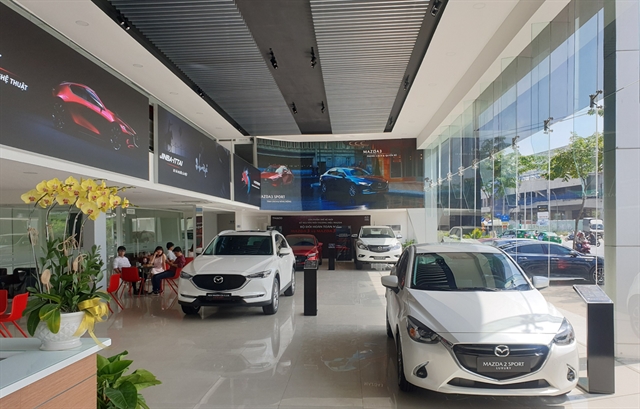 Economy
Economy

 |
| A car showroom in Hà Đông District, Hà Nội. — VNA/VNS Photo |
HÀ NỘI — Domestically produced and assembled cars are to have their registration fees slashed by half during the last six months of 2023, according to the Government Office.
In an earlier development, Deputy Prime Minister Lê Minh Khái told the Minister of Finance (MoF) and the Minister of Justice to finish the groundwork to bring down registration fees for cars produced and assembled in Việt Nam.
The decision was made based on a proposal by the MoF, who was put in charge of a coordinated effort across ministries to realise the cut, which will be put in place during the last six months of the year, from July 1 until December 31.
The two ministries were told to submit a final plan for review no later than June 15.
Last year, the Government had, on two occasions, halved registration fees for domestically produced and assembled cars, in attempts to boost consumer demand and support the domestic car industry.
According to the MoF, a 50 per cent decrease in registration fees for domestically produced and assembled cars during a period of six months could reduce the State's budget collection by as much as VNĐ8-9 trillion.
While the cut could help the industry in the short-term, it also posed a risk to localities' fiscal balance as well as the central government budget, said the MoF.
In addition, it could negatively impact the country's commitments as a member of various international trade organisations and FTAs as the cut only applied to domestically produced and assembled cars.
Car importers have long voiced their concerns over the perceived unfair treatment and called for the reduction to be available for imported cars.
In an earlier statement, the MoF maintained that the main difficulties faced by the industry last year were caused by supply disruptions, which resulted in a supply shortage. Meanwhile, demand has remained fair and stable with little impact from inflation.
The cut had been a big help to both car manufacturers and dealers in speeding up the recovery of the supply chain and meeting the market's demand. It has resulted in strong sales numbers, which partly offset the revenue loss by the State and localities.
This year, however, has seen demand for cars plummeting. Further cuts may only produce a limited effect on sales and stimulate consumer demand compared to last year, while it will put fiscal stability at risk. — VNS




